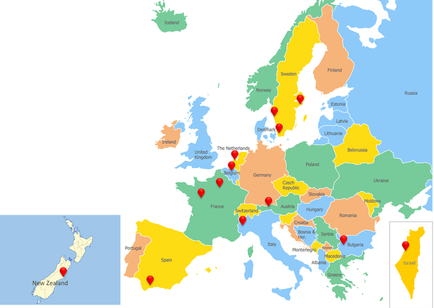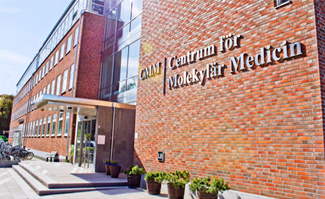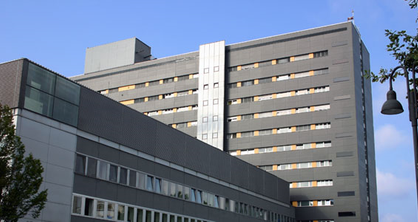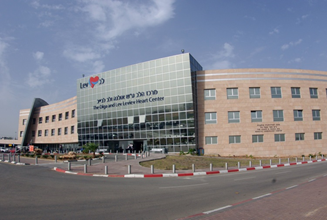
Laboratory for Therapeutic and Diagnostic Antibodies,
KU Leuven, Belgium
Sanquin,
Amsterdam, Netherlands
Inflammatory Bowel Disease Unit and Gastro-Immunology Laboratory, Sheba Medical Centre, Tel Aviv, Israel
University of Tours,
Tours, France
Department of Neurology, Innsbruck Medical University
Innsbruck, Austria
Department of Clinical Immunology, Karolinska University Lab,
Stockholm, Sweden
Department of Clinical Neuroscience, Karolinska Institutet,
Stockholm, Sweden
Institute of Molecular Biology at the Bulgarian Academy of Sciences,
Sofia, Bulgaria
Regional University Hospital in Málaga (IBIMA)
Malaga, Spain
Regional Multiple Sclerosis Centre, AOU San Luigi Gonzaga Orbassano,
Turin, Italy
Canterbury Health Laboratories, Christchurch, New Zealand
The Department of Medical Biochemistry at Oslo University Hospital is the largest in Norway and performs about 12 million tests annually within all branches of medical biochemistry. The section at Radiumhospitalet specializes in production of monoclonal antibodies and in-house immunometric assays for tumor markers, biopharmaceutical blood concentration and anti-drug antibodies. We offer an extensive repertoire of assays for measurement of biopharmaceutical blood concentrations, both for routine clinical practice as well as internal and external research projects.
Diseases researched
The laboratory collaborates with several clinical departments within Oslo University Hospital. Other important collaborators are the Division of Rheumatology and Research at Diakonhjemmet Hospital and the Department of Gastroenterology at Akershus University Hospital.
Inflammatory diseases
Cancer
Immunoassay development
Immunofluorometric assays
Antibody interference testing
Website links:
Forside - Oslo universitetssykehus (oslo-universitetssykehus.no);

Canterbury Health Laboratories (CHL) is one of two tertiary level reference and teaching laboratories within New Zealand with capability and experience in providing a range of services. CHL employs over 400 staff, including experienced teams of medical laboratory scientists, technicians, scientific officers and clinicians, with expertise across all disciplines. Research and development is supported.
Diseases Researched:
The Immunology Section within CHL provides a nationwide therapeutic drug monitoring service to gastroenterologists and rheumatologists for Infliximab, Adalimumab and Etanercept. The tests provided include drug levels for infliximab, adalimumab, etanercept and ADA for infliximab, adalimumab and etanercept.
Performed Tests:
Drug levels are measured using in-house validated ELISA. ADA are measured using HMSA method, and neutralising ADA determined using an in-house validated competitive ligand binding assay. The techniques used are published.
Website link:
https://www.chl.co.nz/contact-us
with our tests listed under TNF Biologic Drugs
Contact: Paula Keating@cdhb.health.nz pH +64 3 3640413

This clinical research laboratory provides science, education and training in the field of immunogenicity. Autoimmune and inflammatory diseases are the primary focus. They aim at translating research about immunological reactions against biopharmaceutical treatments in patients with chronic inflammatory diseases to clinical practice. To this end they independently test different methods for ADA detection, validate methods for detection of immune complexes by using the biobanks available at Karolinska University Hospital and the Swedish high quality patients registers. The aim is to provide clinically relevant algorithms for which patients to test, when to test them, with what methods and how to interpret the test results. Since 2003, the lab has been providing routine ADA tests for interferon beta treatment in MS patients, then ADA against natalizumab and from 2017 ADA against rituximab and ADA in immune complexes formed with infliximab. They have been part of the ABIRISK project where the lab, together with other academic and EFPIA partners, studied immunogenicity (http://www.abirisk.eu/).
Diseases Researched:
The main diseases researched in the lab are autoimmune and inflammatory diseases:
Developed methods:
ADA titres:
Website link:

Karolinska University Lab, Clinical Immunology and Transfusion Medicine. This routine laboratory servers the hospital with all clinical tests needed, including drug levels for infliximab, adalimumab, etanercept and rituximab as well as ADA for infliximab and adalimumab. It is an academic health care function, including research and education, with a close strategic partnership between Karolinska University Hospital and Karolinska Institutet.
Diseases Researched:
Diseases that are tested in the lab include autoimmune and inflammatory diseases:
Performed Tests:
Drug levels:
ADA titres:
Website link:

Diseases Researched:
This lab mainly focuses on research into Multiple Sclerosis:
Performed Tests:
ADA titres:
This research laboratory is the only laboratory accredited by Biogen in Spain, spreading this service to all the hospitals throughout the Iberian peninsula.
Website link:
http://www.ibima.eu/en/grupo_investigacion/neuroinmunologia-esclerosis-multiple

Diseases Researched:
This laboratory focuses mostly on biomarkers for neurology, and researches diseases such as:
Performed Tests:
Drug levels:
ADA titres:
Website link:
https://www.i-med.ac.at/neurologie/forschung/immunologie.html

The PATCH team (PhArmacology of TherapeutiC antibodies in Human) studies the sources of variability of response to therapeutic antibodies, both in terms of efficacy and adverse side effects. In this field, the team evaluates individual factors that may influence drug pharmacokinetics and their concentration-effect relationship in humans. The team is also studying response biomarkers in an integrative way, using a Quantitative Systems Pharmacology approach applied to pharmacokinetic-pharmacodynamic (PK-PD) modelling
Diseases Researched:
The works of the laboratory covers all therapeutic antibodies and therefore concerns:
Performed Tests:
ELISA: Measure drug concentrations of monoclonal antibodies and other biopharmaceuticals in serum and other biological fluids:
Website link:
Research team (PATCH):
PITAM / CePiBAc Laboratory, Tours University Hospital (in french):
http://www.chu-tours.fr/centre-pilote-de-suivi-biologique-des-traitements-par-anticorps-cepibac.html
MAGE consortium/LE STUDIUM
MabImprove
http://mabimprove.univ-tours.fr/en/
ABIRISK

The laboratory for Therapeutic and Diagnostic Antibodies is a research laboratory affiliated with the Department of Pharmaceutical and Pharmacological Sciences of the KU Leuven in Belgium. The laboratory has a large expertise in the generation, characterization and application of monoclonal antibodies towards different targets. In-house generated antibodies have been used to develop immunoassays used to determine drug and anti-drug antibody concentrations. The laboratory served as analytical centre for drug and ADA measurements within several prospective clinical studies (e.g. TAXIT, TAILORIX, GOUDA).
They are a part of the Monitoring Monoclonal Antibodies Group Europe (MAGE) and the lab is a co-founder of PharmAbs, the KU Leuven Antibody Centre. PharmAbs is an innovation, incubation and valorization platform at KU Leuven, clustering the antibody expertise of five different KU Leuven groups with a mission to translate fundamental biomedical research carried out by universities into lead products for new medicines or into novel diagnostic solutions.
Diseases Researched:
The laboratory collaborates with different hospitals in and out of Belgium. Their main collaborator is the University Hospital of Leuven (UZ Leuven) with whom they collaborate on the research of:
Additionally, a collaboration has started with the Department of Dermatology of UZ Ghent.
Performed Tests:
Drugs tested:
To measure drug levels:
To measure ADA titres:
Website link:
http://pharm.kuleuven.be/biotech

Being the largest government hospital in Israel and serving more than 100,000 patients a year, Sheba Medical Centre is the responsible choice for medical treatment. It contains Gastro-Immunology Lab that researches into GI tract diseases and measures levels of biologics used to treat these diseases, and the ADAs against these therapies. It mainly focuses on irritable bowel syndrome, which is an inflammatory condition of the gut.
Diseases Researched:
Irritable Bowel Syndrome
Performed Tests:
Drug levels:
ADA titres:
Website link:

Sanquin produces plasma pharmaceuticals, develops blood group and immune reagents, performs a multitude of diagnostic services, conducts high-quality scientific research and provides education and training. Sanquin provides diagnostic services for blood transfusion and immunology. We can perform all blood-related laboratory tests for hospitals, blood banks, institutes, obstetrics clinics, insurance companies and pharmaceutical organisations. Sanquin Diagnostic Services provides over more than 600 different diagnostic tests.
Diseases Researched:
Sanquin is the knowledge institute in the field of blood, and conducts scientific research in the fields of:
Performed Tests:
Sanquin provide services for:
Website link:

This labs research is focused on the quality of recombinant proteins produced in Escherichia coli. They are searching for the reasons causing structural instability and immunogenicity of therapeutic proteins and for ways how to overcome these problems. They discovered an unknown cause of protein drugs’ immunogenicity – the involvement of the proteins in the Maillard reaction (glycation) during their synthesis in the bacterial host. The Maillard reaction results in the formation of sugar-derived neo-epitopes in the proteins known as advanced glycation end products (AGEs). The lab further explores means to avoid or at least minimize glycation of the recombinant proteins throughout the manufacturing process starting with fermentation and ending up with drugs’ formulation and storage.
Diseases Researched:
They are developing protein drugs for treatment of:
They have developed two pharmaceutical formulations based on human γ-interferon (hIFNγ):
Current projects are committed to the development of protein drugs for management of autoimmune disorders linked to the endogenous overproduction of hIFNγ such as:
Performed Tests:
Drugs measured:
hIFN-γ drugs
ADAs measured:
hIFN-β binding and neutralizing antibodies, cross-reactivity of anti-IFNβ antibodies with advanced glycation end products (AGEs)
Website link:

The Clinical Neurobiology Laboratory of the Regional Referring Multiple Sclerosis Centre (CRESM) is located at Neuroscience Institute Cavalieri Ottolenghi (NICO), University Hospital San Luigi Gonzaga, Orbassano, Turin (Italy). The laboratory deals with routine cerebrospinal fluid analysis and oligoclonal bands detection from AOU San Luigi Gonzaga patients and from several Piedmont centres. Additionally, detection of anti-Aquaporin 4 and anti-Myelin Oligodendrocyte Glycoprotein antibodies on serum samples by immunofluorescence assay and FACS assay respectively are performed for differential diagnosis with Neuromyelitis Optica Spectrum Disorders. Furthermore, the lab is focused on the evaluation of treatment-response biomarkers in MS treated patients to monitor the biological response to therapy and identify risk factors
Diseases Researched:
The main diseases that this lab researches are:
Performed Tests:
Drug serum levels
ADA titres
IFNβ biological activity
Rituximab monitoring

Copyright © All Rights Reserved